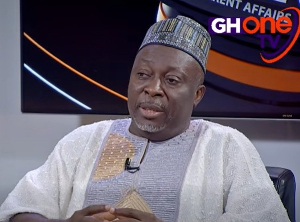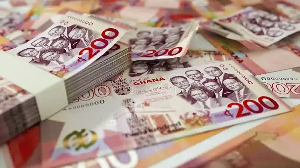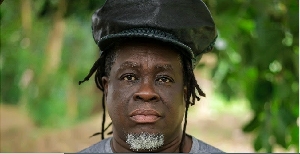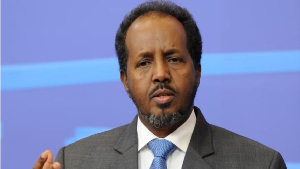Dr Kwame Nkrumah: A Social Democrat or A Communist Agitator? JusticeGhana Samaritan Group Traces The Answers From The Osagyefo’s Final Official Speech On The Volta River Project
MEMO
The year 1989 marked a dramatic watershed in the history of communism and in ideological history generally. Commencing in April with student-led ‘democracy movement’ demonstration in Tiananmen Square in Beijing and culminating in November in the fall of the Berlin Wall, the division of Europe into capitalist West and communist East, according to Heywood (2003), was brought to an end. “By 1991 the Soviet Union, the model of orthodox communism, had ceased to exist. Where communist regimes continue, as in China, Cuba, Vietnam, North Korea and elsewhere, they have either blended political Stanlinism with market-oriented reform (most clearly in the case of China) or suffered increasing isolation- as in the case of North Korea,” Heywood argues.
So there is a growing concern not only within the Convention Peoples Party (CPP) functionaries and sympathizers but also among most Ghanaian traditionalists and the academia in general, over the burning question over whether or not Dr Kwame Nkrumah- a perceived sympathizer of these nations, was a communist agitator and/or social democrat. And if no to communism, whether or not the ruling National Democratic Congress under the leadership of President J.E.A. Mills, could be labelled as one of the Nkrumahist families. The research, as it shall be shown here, raises many complexities and calls for honest and critical consideration of all relevant issues being advanced, hence a review of the 22 January1966 speech delivered by the Osagyefo at the formal inauguration of the Volta River Project- barely a month before he was deposed in a coup.
The Problem
Learned Comrades, you recently requested for a research on “what if Dr Nkrumah were to be alive and president of Republic of Ghana today” so as to be able to distinguish Convention Peoples Party from the National Democratic Congress. We file in abridge the speech on the inauguration of Akosombo Dam that might be of interest to the New CPP.
In our earlier work- A Death of Nkrumahism: Why CPP Is A Broken Home, we revealed that there are two products of Nkrumahism- the Nkrumahists who enjoy the fruits of capitalism and all its associated socio-economic and political innovation but disdain its related ideological hardships and economic biases- unfairness and imbalances in the distribution of global wealth and justice. We may call them the “anti-imperialists, internationalists or say, devout Pan-Africanists. Then are those who attempt to profess that all that Nkrumahism means or stood for- are that “Independence Now” against the “arms-twisting matemeho of Independence in the shortest possible time” of yesteryears. Indeed there could be a “third force” that enjoys the trappings of both- Die Neue Mitte?
Although the ideological pathways of both the New CPP and NDC appear conflicting and unclear, application of the often bored such ancient political rhetoric and terminologies as imperialism, colonialism, bourgeoisies, proletarianism, Marxism and Leninism by its so-called die-hards or self-righteous stalwarts and crusaders, calls for the definition and consideration in passing communism and social democracy. Social democracy, according to Andrew Heywood (ibid), is a moderate or reformist brand of socialism that favours a balance between the market and the state, rather than the abolition of capitalism. Communism is a belief in the principle of the common ownership of wealth; and as Heywood puts it, broadly refers to movements or regimes that are based on Marxist principles. In the opinion of Marx, a social revolution is qualitative change in the structure of society; which involves a change in the mode of production and the system of ownership. This is in the context of state socialism, which as Heywood describes it, acting in theory, seeks to control and direct economic life in the interest of the people.
Thus to the communist, the self or person is constituted through the community in the sense that there are no ‘unencumbered selves’. Thus individuals, in the words of Heywood (ibid), are shaped by communities to which they belong and that owe them a debt of respect and consideration. For example, whereas the left-wing communitarianism holds that community demands unrestricted freedom and social equality, centrists communitarianism- such as social democracy/British Tory, holds that community is grounded in an acknowledgement of reciprocal rights and responsibilities. At the same length, the right-wing communitarianism- as in the case of the new right, believe that community requires respect for authority and established values. It is arguable but perhaps undeniable fact that with its so-called “Central Committee” (CC)), communism is often associated with authoritarianism- a belief that strong central authority- here absolute obedience to its principle, imposed from above, is either desirable or necessary.
Obviously, this is vast in contrast to capitalism, an economic system in which wealth, in the words of Heywood, is owned by private individuals or business and goods are produced for exchange, according to the dictates of the market. This is often cited as privatization… the transfer of state assets from public to private sector reflecting a contraction of the state’s responsibilities… The brutal form of privatization without human-centred approach, in our judgement, could be inimical to a developing country like Ghana, where the tax base appears weak, porous and generous to affluent owners of capital in the production of goods and services at the expense of the vast majority of ordinary citizens. The Osagyefo Dr Kwame Nkrumah is seen as great egalitarian- one with a strong desire in the promotion of equality at all levels of human endeavours. Egalitarianism is sometimes seen as the belief that equality is the primary political value.
Yet Heywood submits that equality, the principle that human beings are of identical worth or are entitled to be treated in the same way; can have widely differing imports. Notwithstanding the principle of democracy- the rule by the people; that implies both popular participation and the veiled assumption that government acts in the public interest, the saga of ex-gratia, the sale of tractors to politicians at generous terms and the current news report dashing cars and cash to political serial callers, could yes, raise objectionable definition to political ideologies, at least, where Ghana is our preference. Both the Osagyefo and Rawlings share the basic principle of a “revolution- defined as a fundamental and irreversible change, often a brief but dramatic period of upheaval; and systematic change in the name of proletariat. A term often used by the Marxist to mean a class that subsists through the sale of its labour power? Strictly speaking, the rhetoric term as Heywood rightly puts it, is not equivalent to the working class (manual workers).
With these complexities, we suggesed and indeed concluded that the ability of the New CPP to cart a vicious political path of 21st century will go a long way of tracing and yes, overreach the true treasures of Kwame Nkrumah, who held so much for Ghana and the World but how could they do it? Unlike the known remote route(s): guerrilla/military uprising or Positive Action, associated with the believers of “classless society”- today, there seem to be shared assumption that all Nkrumahists are social democrats- in that they wish to achieve political power through the ballot-box, where the Will of the people, is exercised. Yet the ideological principle of CPP is confused if not utterly misinterpreted.
For most ‘Latter Days Nkrumahists’ and indeed the so-called remnants of Young Pioneer, Osagyefo Dr Kwame Nkrumah is/was an anti-imperialist “Black Messiah”. Imperialism is defined by Heywood (ibid) as the extension of control by one country over another, whether by overt political means or through economic domination. To them, this could be evil only where the imposing nation is/was a western country. Sitting in comfort and freedom in their western-designed mansions and innovations, they glue themselves to their sofas and browse through various webpages and indeed combing through different newspapers of their choice, they scorn everything about free market- the principle or policy of unfettered market competition, free from government interference. Yet, these self-acclaimed Nkrumahists talks of freedom (or liberty)- the ability to think or act as one wishes, that is often associated to every individual, a social group or a nation?
Reasoning like most orthodox Christians still awaiting for the coming of the “True Messiah”, they appear to be motivated by the dictatorship of the proletariat, the term that Marx used to denote the transitionary phase between the collapse of capitalism and the establishment of full communism, characterized by the establishment of a temporary proletarian state in Ghana and, to the larger extent, the whole land mass of Africa. This is wrong and runs counter to the true political consciousness of the Man Kwame Nkrumah whom they profess to be their saviour. Indeed in his final official speech delivered while inaugurating the Volta River Project (22 January1966), President Nkrumah hinted that Ghana is a small but very dynamic independent African state which was trying to reconstruct its economy and to build a new, free, and equal society. And to do this, he said we must attain control of our own economic and political destinies if we were to be able to create higher living standards for our people and free them from the legacies and hazards of a colonial past and from the encroachments of neocolonialism.
Yet Dr Nkrumah underlined the world of contradictions which he explained as something that somehow, help keep our world going. So, the Osagyefo who described Edgar Kaiser, President Eisenhower, and President Kennedy as genuinely interested in the Akosombo Dam because they saw behind the cold figures and the rigid calculations, that the Volta River Project was not only an economically viable project, but also an opportunity for the United States to make a purposeful capital investment in a developing country, advised: “In such a world we certainly need great friends. The United States is a capitalist country. In fact, it is the leading capitalist power in the world today. Like Britain in the heyday of its imperial power, the United States is, and rightly so, adopting a conception of dual mandate in its relations with the developing world. This dual mandate, if properly applied, could enable the United States to increase its own prosperity and at the same time assist in increasing the prosperity of the developing countries.”
The Political Observation and Application
We are commenting on an impasse of the 1960s, an era marked by heightened cold war ideological tensions that centred on the hearts and minds of the world populations- specifically, between the US and Soviets, not forgetting its peripheries and satellite states such as East Germany in Europe, China in the Asia and Cuba, in the Americas. The Osagyefo was undoubtedly, a trusted friend to all of them, yet he cannot, arguably, be described as communist but loosely defined, as a social democratic, although he saw himself as Nkrumahist and in the period under consideration, ruled out active multi-party democracy. The final shift in the meaning of social democracy, according to Heywood (ibid), occurred by the mid-twentieth century, and resulted from the tendency among parties not only to adopt parliamentary strategies, but also to revise their socialist goals. Thus, western social democrats at that point no longer sought to abolish capitalism but rather to reform or ‘harmonise it. They therefore came to stand for a broad balance between the market economy, on the one hand, and state intervention, on the other.
Thus Dr Kwame Nkrumah was himself not an enemy to capitalist economy and the fruits that mutual co-operation of nations might bring to its people, although he sometimes appeared to have had his reservations about them. Otherwise he would not have made reference to the late President Kennedy and President Eisenhower and Edgar Kaiser, who he described as friend and whose faith and enthusiasm for the Volta Project ((according to the Osagyefo who once said at Ghana’s independence declaration that Africa, is ready to fight its own battles)), provided the spark that brought the Volta Dam to life when the prospects for its continuation were at their lowest ebb and that it was a pity that Edgar's father, Henry Kaiser, who had been a lower of strength and inspiration to Edgar and the Osagyefo himself throughout their efforts on the Dam, cannot be with them on that day.
“By this inauguration ceremony, our great and dynamic party, the Convention People's Party, has kept faith with the people. In our party election manifesto in 1951, we made a promise that we would do everything possible to bring the Volta River Project into being. From that time, this scheme has been one of our greatest dreams. My faith in it never faltered, in spite of the disappointments and frustrations created by the difficult and intricate financial negotiations involved. I have on a previous occasion told the story of my meeting with Edgar Kaiser in New York in 1958, which proved to be an important watershed in the story of this scheme. I cannot minimize the part played by Chad Calhoun as an intermediary between me and Edgar. My meeting with Edgar Kaiser illustrates the way in which individuals of faith and goodwill can contribute to close relations between peoples and nations, between governments and governments.” According to Pan-African Campaigner Kwame Nkrumah, it was on this common ground of our mutual respect and common advantage that our two countries-Ghana and the United States of America-made the contact from which grew this project. “The result of this contact is living proof that nations and people can cooperate and coexist peacefully with mutual advantage to themselves despite differences of economic and political opinions,” he said. Judging from the Ghanaian history and culture, there is little evidence to suggest whether Ghana could have been transformed to communist state that we Saw OR SEE around the world. There appears to be strong evidence that Nkrumah would not have supported the “brutal form of capitalism or could have succeeded in driving the African into communist federations- the powers that be would have yes, opposed it. And the Osagyefo, who in his own words, believed in the collaboration of states for a better world as JusticeGhana sees it below, couldn’t have pushed it through with force of arms.
“The Volta River Project was a concrete symbol of the type of international cooperation which can, to quote my friend Edgar Kaiser, help to "forge world peace." It is perhaps the greatest tragedy of today's world that billions of dollars, rubles, and pounds should be spent every year on military armaments and on wars. If the money wasted on wars and war preparations were invested in projects like the one spread out before us, these enormous capital funds could revolutionize the economies not only of the developing world, but also of the developed countries. It would in fact eliminate what is the major threat to world peace, namely the ever-widening gap between the developed and the developing nations. Unless this gap is closed, no peace effort of any kind can save mankind from ruin and ultimate destruction,” Nkrumah said on 22 January1966. Perhaps this is one of the most honest texts worth considering alongside the entrenched scripts in Nkrumahists’ Torah such as: Class Struggle in Africa (1970); The Struggle Continues (1973); I Speak of Freedom (1973) and the Revolutionary Path (1973)? Thus the current crops of Nkrumahists are trapped in citations that offer little or no hope to Nkrumahism.
CPP At Crossroads?
Yes, in sum, permit us to conclude that save the ongoing political and ideological takeover and acquisition, there seems to be no available political or academic work(s) to be attributed to Professor Mills on Nkrumahism. Yes, Rawlingsism and Nkrumahism share some sort of “personal and political similarities”- at least on power and national wealth distribution. The political complication here is that the Ghanaian had been confused over the difference between CPP and NDC when summoned to give their political verdict. And since it could hardly be impossible for any political party in Ghana today to survive two political terms, such a political collaboration might be a suicidal for CPP. At least not where it is being forced on throats to concede that P(NDC)- that mortgaged strategic monuments and legacies, and whose sole founder had said that Nkrumah achieved nothing for Ghana but national flag and anthem, is one of the Nkrumahist parties? A Death and yes, Changing Faces Of Nkrumahism, one might argue.
Reflections
We are yet to witness a day in the Kingdom of Great Britain, where political power, will slipped from the grips of Labour to the Liberal Democrats rather than the Conservatives. Perhaps the greatest enemy to the survival of the New CPP and Nkrumahism, Nelson Mandela (once accused communist) who birth day attracts inter-continental personalities such as the Queen of England, might have thought, is not the perceived (neo)colonialist imperialist west but rather the inability of the New CPP, to alter some of its conflicting historical accounts and verses in his holy books that hold it not only to perpetual slavery and subjugation but also put its credibility and autonomy, in doubt. They have a choice.
Email: thesamaritanresearchgroup@justiceghana.com JusticeGhana.com
Opinions of Thursday, 17 September 2009
Columnist: The Samaritan Research Group














